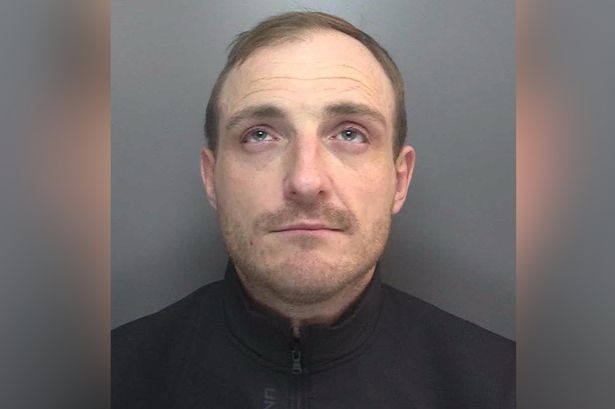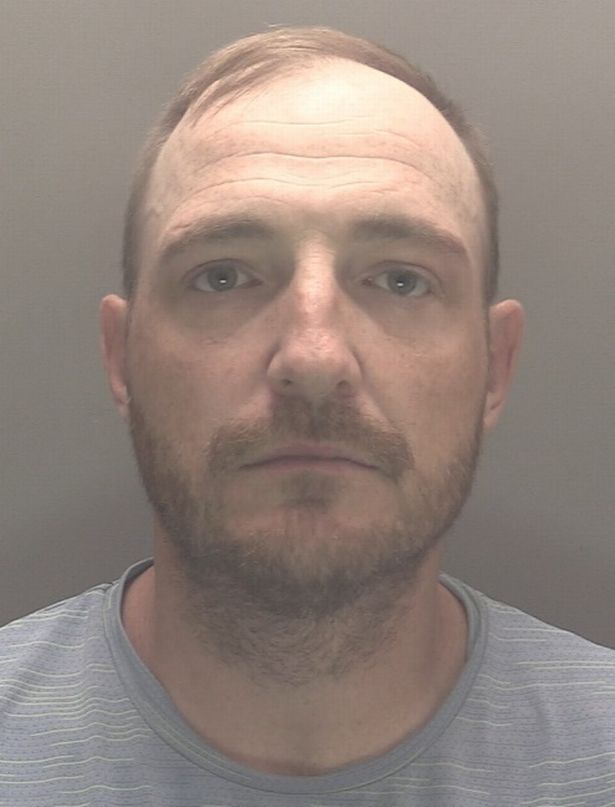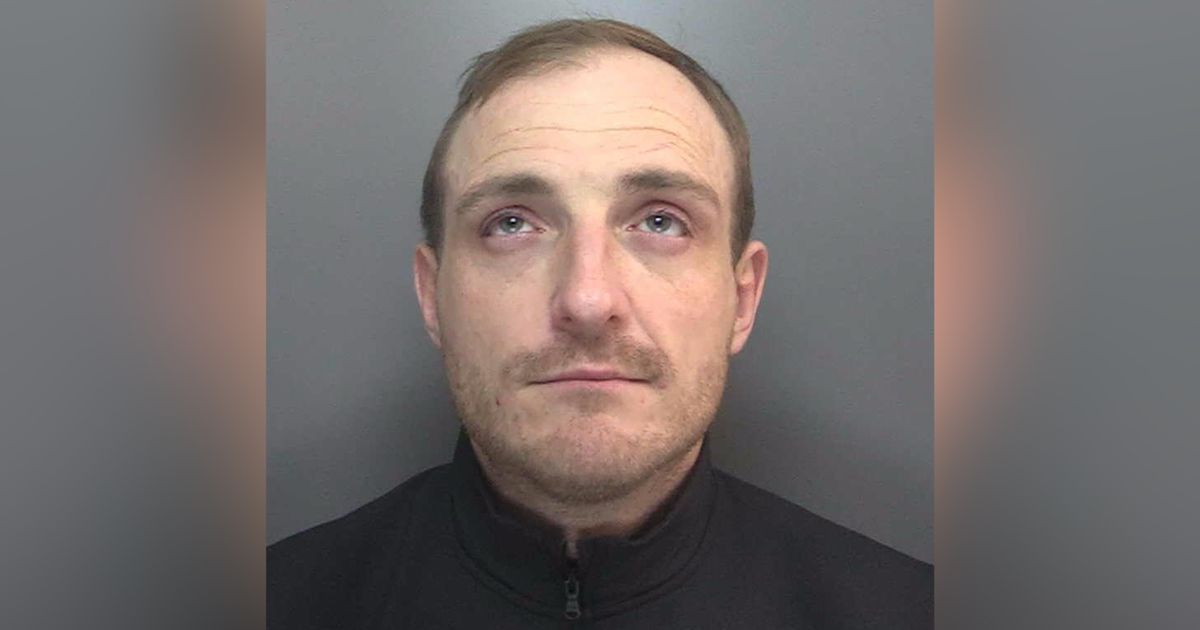Craig O’Donohue once hoodwinked Liverpool FC supporters across the world in a £100,000 ticket scam Craig O’Donohue has a history of dishonesty and drug dealing(Image: Liverpool Echo)
Craig O’Donohue has a history of dishonesty and drug dealing(Image: Liverpool Echo)
A drug dealer who was jailed after being caught hiding heroin and crack cocaine in a tree stump returned to “peddling misery” on the streets after he was released. Craig O’Donohue, 39, was spotted carrying out his drug trade on Dale Street in Liverpool city centre not long after coming out of prison.
He was caught on May 16 last year, after police were alerted to suspected drug dealing in the Dale Street area by CCTV operators. Officers arrived and stopped a Mercedes car, and O’Donohue, the front-seat passenger, was located inside a nearby William Hill betting shop.
At Liverpool crown court on Wednesday, August 20, prosecutor David Watson said: “Both the defendant and the vehicle were searched and from the vehicle they found a total 30 packages of crack cocaine – 2.36g – located under the driver’s seat. That was an estimated 30 £10 deals with a value of £300. Bags of cannabis were found in the passenger door.
“On his person was eight knotted packages of heroin totalling 0.7g, £5 deals with a total value of £40, and six packages of crack cocaine totalling 0.3g, thought to be six £10 deals with a value of £60.
“On the defendant’s iPhone no relevant evidence was recovered, but there was also a Nokia burner phone containing flare messages consistent with the supply of crack cocaine and heroin.”
£352 cash was also recovered. The court heard O’Donohue, of Curate Road in Anfield, had 21 previous convictions for 40 offences, including several for dealing class A drugs – meaning he faced a mandatory minimum sentence of seven years behind bars.
In 2015, he hoodwinked Liverpool FC supporters across the world in a £100,000 ticket scam. Fans paid hugely-inflated prices to watch their beloved Reds play at Anfield, only to be turned away at the gates after their tickets turned out to be fake.
He returned to court in 2021, where he pleaded guilty to possession of cocaine and heroin with intent to supply. He escaped a “third strike” sentence at that time after a judge ruled the minimum seven years would be “unjust” due to the fact his two previous convictions for Class A drug dealing were committed when he was just 16 and 17 years old.
 Craig O’Donohue, of Curate Road in Anfield(Image: Merseyside police)
Craig O’Donohue, of Curate Road in Anfield(Image: Merseyside police)
Appearing back in the docks today, O’Donohue once again escaped the seven-year sentence. Julian Nutter, defending, said: “It’s often the case that people addicted to class A drugs get to a stage in their lives at which they either do or do not reform, and it’s quite surprising that a number of people who are addicted to drugs will ‘get bored’, for want of a better word, and turn.
“He was a drug user in drug debt, supplying a drug to which he was addicted for many years. He’s somebody who has been exploited in the past and has been punch drunk with that exploitation.
“Before he was committed (to prison) probation noted he had been making positive steps in being a positive member of society. Since being released he was engaged in support around drug use. He has enrolled in the railway services: ‘We are with you’ and he’s hoping to gain employment there following the course.”
He added: “The road to Damascus is a long one. Sometimes conversion comes late in the day. But he shows every sign of having converted.”
O’Donohue pleaded guilty to possession with intent to supply crack cocaine and heroin, and possession of cannabis.
Judge Charlotte Crangle said: “I accept the reason you got back into dealing drugs is the debt that you still found yourself carrying on release from your previous sentence, and you felt you have no alternative. No doubt that was the way you made money in previous circumstances.
“You know too well the misery these drugs cause. Those who become addicted to them turn to crime to fund their habits and to service their debts, and they can lead to fractures in families, destroying lives, destroying things in society. Those who deal in class A drugs get longer and longer sentenced because they continue supplying their misery.”
Accepting O’Donohue had taken steps to turn his life around, she said: “The purpose of sentence is not just punishment on offenders, but protection of the public and rehabilitation. It may well be that the public interest is best service by you being able to make a positive contribution to society and also to continue to make some progress with employment.”
She sentenced him to four years and five months in prison.
